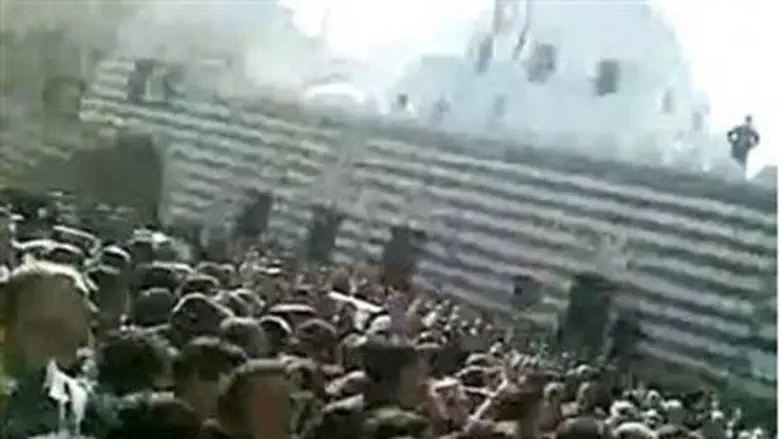
Seven police officers and at least four demonstrators in Syria have been killed in continuing violent clashes that erupted in the southern town of Daraa last Thursday.
The clashes came amidst growing political tension in the Muslim nation, whose Presidents and many senior officials have always come from Syria's influential Shia Alawite minority, when twenty students were arrested for spray-painting anti-government graffiti on a wall.
On Friday police opened fire on armed protesters killing four and injuring as many as 100 others. According to one witness, who spoke to the press on condition of anonymity, "They used live ammunition immediately -- no tear gas or anything else."
At the funerals of two of those killed opposition leaders handed authorities a list of demands, which included the release of political prisoners. In an uncharacteristic gesture intended to ease tensions the government offered to release the detained students, but seven politice officers were killed, and the Baath Party Headquarters and courthouse were torched, in renewed violence on Sunday.
The latest clashes occurred after unconfirmed reports that two more protesters had been killed began to circulate. According to witnesses, Syrian security forces have encircled Daraa to impede more protesters from reaching the city. Anti-government protests are rare in Syria and have traditionally been brutally put down, but Daraa is not the only town where protests have occurred.
There were also protests in Banias, on the Mediterranean coast, in the central city of Homs, and in the capital Damascus. A Facebook page, “the Syrian revolution 2011,” has called on people to protest against corruption and repression. Thousands have taken to the streets chanting "God, Syria, and Freedom only!"
Reports of pro-government forces assaulting demonstrators have emerged from all four cities, with a large numbers of arrests in the capital of Damascus, and witnesses claimed the entrances to the town of Banias have been closed. Protestors are demanding an end to 48 years of emergency rule, which was imposed during the Baath Party's military takeover of the country in 1963.
Syria's current president, Bashar Al-Assad, is the son of Hafiz Al-Assad, who himself seized control of the Baath Party during a coup in 1970, ruling the country until his death in 2000. While Bashar Al-Assad is technically Syria's elected President, the Baath Party has run its candidates unopposed since seizing the reigns of power and established a political safety-net by densely integrating the military into government.